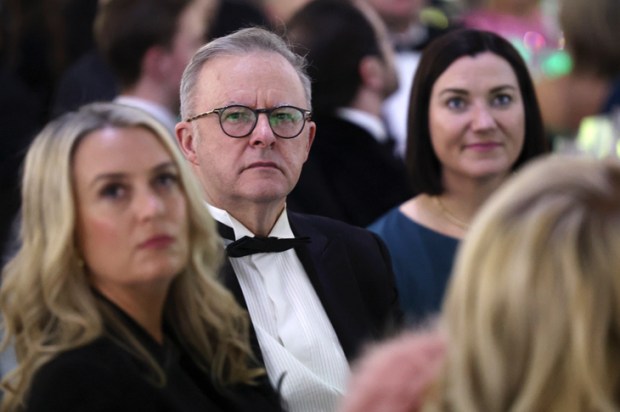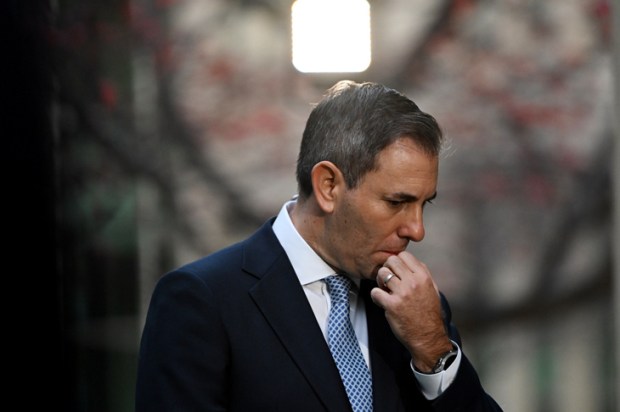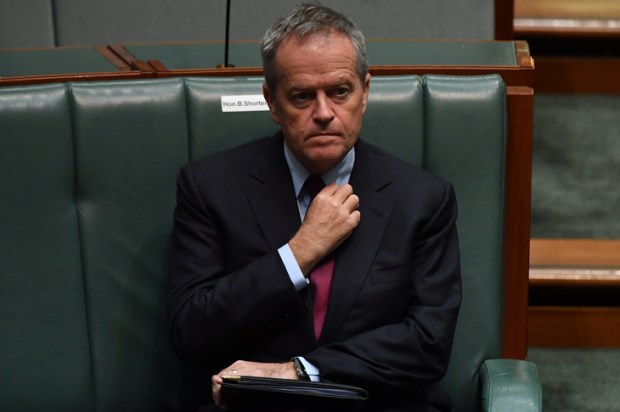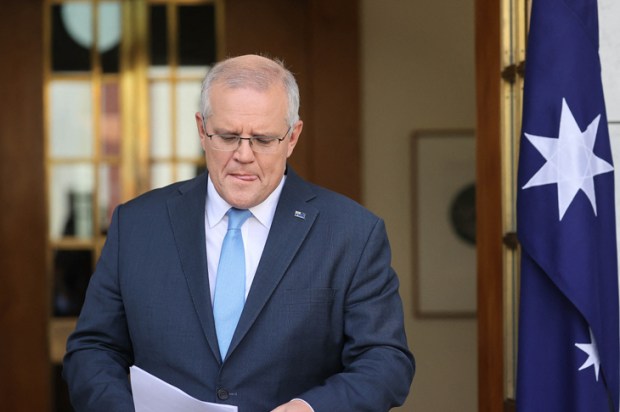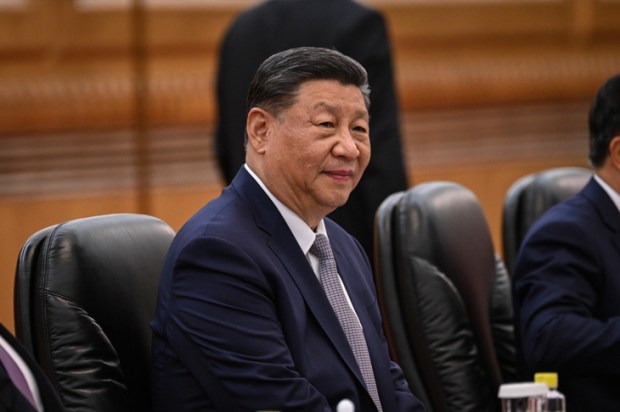Free societies cannot exist without free speech nor survive without independent media able and willing to speak truth to power. Both pillars of free speech have been badly corroded over the last four years, as I argued in this magazine on 17 April 2021 and in a Brownstone article on 15 March 2023. The World Health Organisation officially declared Covid-19 a pandemic on 11 March 2020. On 19 March, New Zealand’s Jacinda Ardern declared, ‘We will be your single source of truth.’ Almost all governments as well as the WHO acted on the same belief to impose draconian curbs on dissenting voices for the next three years. The net result was to worsen the pathologies associated with lockdown, mask and vaccine policies, ensuring that the cure has proven to be immeasurably worse than the disease.
From 2012 to 2024, Julian Assange spent seven years in asylum in the Ecuadorian embassy in London and five years in a British prison. He was released last month after pleading guilty to a ‘conspiracy to disseminate national defence information’ – a charge that would be just as applicable to the publication of the Pentagon Papers by Daniel Ellsberg. Simon Jackson, former CEO of Sydney University’s US Studies Centre, described Assange as ‘a convicted felon’ – the language that Bidenites are using against Trump with about as much success in the court of public opinion. The journey from Ellsberg to Assange is the story of the fall of investigative journalism and the triumph of the national security and surveillance state in which most of contemporary media is now nested. The key question now as in 1971 is not the right of journalists to publish classified information, but the people’s right to the information necessary to expose the crimes and corruption of public officials.
Wikileaks published the Afghan and Iraq war logs in 2010 and internal Democratic party documents in 2016 detailing how the party organisation ran interference in the primaries for Hillary Clinton against Bernie Sanders. In 2017 WikiLeaks released details of CIA hacking capabilities and software tools. Information from WikiLeaks was initially published in collaboration with some of the world’s leading media outlets, including the Guardian, New York Times, Der Spiegel, El País and Le Monde newspapers, redacted to protect the identities of sources and personnel. Once the US state began to hound Assange, all these mainstays of the mainstream media abandoned him.
What if Assange had founded WikiLeaks in 2019 and first come to global prominence in 2024 for leaking troves of documents that detailed the murky shenanigans behind lockdowns, masks and vaccines and collusion between state actors, Big Pharma, Big Tech and legacy and social media? After all, by now we have enough reason to wonder about the involvement of key national security agencies in the saga. This question is prompted by the coincidence of three legal cases at around the same time. On 26 June, the Wall Street Journal reporter Evan Gerskovich went to trial in a court in Yekaterinburg on espionage charges; Assange returned home; and, in a 6-to-3 split judgement, the US Supreme Court validated government censorship of social media posts so long as it was sophisticated and not overt and crude.
Regardless of Assange’s personal character, what he did with WikiLeaks is justified on four grounds. First, countries often go to war based on lies and media manipulation: Japan’s conquest of Manchuria in the 1930s, the Tonkin Gulf resolution in 1964 that midwifed the Vietnam War, the 2003 Iraq war, and Russia’s invasion of Ukraine. In the twentieth century increasing normative, legislative and operational fetters were placed on the previously accepted right of sovereign states to wage war and conquer territory. Yet it proved to be the most murderous century in history. Civilised societies must protect those who would expose official mendacity to manipulate countries into foreign wars of choice.
Second, Assange revealed acts of outright criminality without any military justification. WikiLeaks released video footage, dubbed Collateral Murder, of US helicopter airstrikes in Baghdad in 2007 in which more than a dozen civilians were killed. The 18-minute short version has been viewed 17 million times. Short of war, illegal covert operations against friendly foreign governments to benefit private commercial actors also deserve exposure. In the ‘Witness K’ and Bernard Collaery case that dealt with Australian spies ordered to install listening devices in East Timor’s cabinet room, the key beneficiary was Woodside that wanted access to the oil and gas fields in the Timor Sea. Shamefully, both were prosecuted by the federal government but no action was ever taken against the political and bureaucratic officials.
Third, it’s wrong to believe that US and Western malfeasance has no consequences. I argued in real time as a UN official that blowback from the illegal Iraq war would sap US resolve in future conflicts. The Economist noted on 23 May 2014 that, ‘The most glaring source of global scepticism towards American affection for international law can be summed up in one word: Iraq.’ It fed the global narrative that under the influence of the military-industrial complex, the US is engaged in a permanent war, continually bombs other countries, makes more weapons than it needs and sells more weapons than is prudent. As power shifts away from the US-led West, it becomes correspondingly more important for citizens to check potential abuses by their own governments in overseas jurisdictions rather than fuel anti-Western sentiments.
Fourth, the persecutions of Assange and Edward Snowden were milestones on the path to the rise of the biomedical state in which we now find ourselves. This thesis is of course captured in the subtitle of my book Our Enemy, the Government: How Covid Enabled the Expansion and Abuse of State Power. Amy Coney Barrett and Brett Kavanaugh are Trump appointees. Had the two ruled the other way in the Murthy v. Missouri case, the Court would have found 5 to 4 for the plaintiffs on the technicality of lack of standing and terminated state-coerced censorship by social media platforms. If President Trump had shown similar cowardice and ducked tough fights, neither Barrett nor Kavanaugh would be a Supreme Court Justice.
The WikiLeaks document dumps caused great embarrassment to some governments. However, for all the repetitions of the core charge against Assange that he put the lives of US and allied soldiers, including Australians, at risk, no credible evidence has been produced that this actually happened. It foreshadowed much of the basis of Covid tyranny, that to publicly question the efficacy of lockdown, mask and vaccine interventions and mandates was to engage in selfish behaviour that put whole societies at risk of grave health harms, and that the risk to the community’s health was sufficient to justify the most draconian clampdown on free speech and to dismiss doctors. Conversely, if soldiers’ deaths can be attributed to unauthorised disclosures, then it’s fine to charge the leakers. Another parallel is that no US official has apologised for the crimes that Assange exposed or for his persecution.
Got something to add? Join the discussion and comment below.
You might disagree with half of it, but you’ll enjoy reading all of it. Try your first month for free, then just $2 a week for the remainder of your first year.


